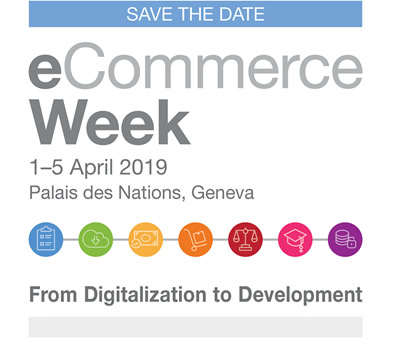Implications of algorithmic decision-making for cartel enforcement: challenges and opportunities for young competition authorities
5 Apr 2019 10:00h - 11:30h
Event report
[Read more session reports and live updates from the UNCTAD E-commerce Week]
The session, organised by UNCTAD, was moderated by Ms Teresa Moreira (Head, Competition and Consumer Policies Branch, UNCTAD) and focussed on the challenges that artificial intelligence and algorithms have created in e-commerce worldwide, including in emerging and developing economies. The session highlighted two main approaches that young competition authorities can undertake: on the one hand, they can face the harmful practices of the algorithmic-driven companies; on the other, they can ‘wait and see’ how other fields and sectors deal with and regulate the topic.
Dr Pierre Horna (Legal Affairs Officer, Competition and Consumer Policies Branch UNCTAD) argued that the contribution of the UNCTAD Secretariat should focus on discussions meant to tackle the 50 percent of the world that is still left behind. Research on algorithms and big data has reached a crucial point in which machines can understand human speech, compete in strategic games, drive autonomous cars, and independently interpret complex data in stock markets. Innovation and algorithmic decision-making is changing and impacting market structures while affecting individual privacy. As a result, an effective way to address the issue is to ‘wait and see’ how other sectors are facing the challenge. Indeed, algorithmic decision-making raises issues related to algorithmic collusion that may create more durable cartels able to maintain higher prices in defence of enforcement regimes. To this extent, research from UNCTAD suggests, among other solutions, an algorithmic collusion incubator, shadowing the industry’s algorithms so as to monitor the industry and test the collusion. Last but not least, in order to address the issue, more voices need to complement the analysis; as well, more case-specific co-operation and experience-based learning should be fostered.
Mr Sadaaki Suwazono (Deputy Secretary General for International Affairs, Japan Fair Trade Commission) presented the globalisation and digitalisation landscape of Japan, highlighting the country’s recent efforts in the digital economy related to administrative punishment, the establishment of contact points, and the investigation of party clauses. Moreover, research studies conducted on e-commerce businesses have highlighted that business platforms tend to adjust real sales prices by providing customers with privileges such as store points and increase the frequency of price revisions, to cite a few. In this context, the kind of market factors that favours cartelists are limited distribution channels; transparency in price and other conditions; and homogeneity of quality of products and services. This is furthermore stressed by the exclusionary conduct of big businesses in using direct or indirect network effects complemented by unfair trade conditions imposed on SMEs.
Mr Mulalo Hardin Ratshisusu (Deputy Commissioner, Competition Commission) acknowledged the potential benefits of algorithms, but stressed that algorithmic decision-making can lead to anti-competitive results. Presenting specific experiences of the Commission, he highlighted the potential abuse and market allocation of certain businesses. In this regard, he recalled that the main issue remains the inability to understand specific algorithms (black box) behind an algorithmic decision-making process.
Mr David Anderson (Partner Head, Brussels Office Bryan Cave Leighton Paisner LLP) presented a private sector-oriented view of anti-trust competition, arguing that the topic represents a challenge for all agencies worldwide. He classified these agencies in three main categories: agencies that are mainly concerned, such as in the European Union; agencies that are defined as ‘content countries’, such as in the United States; and ‘curious’ agencies representing the rest of countries’ approach to the issue. Moreover, complementing this picture, he explained that while some argue that debates over the establishment of a toolkit could be a good solution, such as in the case of ‘content countries’, others raise concerns with regard to liability. Indeed, an open question remains: if there are computer-driven cartels, who is liable?
Mr Philippe Brusick (Chairman, CUTS International Geneva) addressed the question of whether young competition authorities are able to face current challenges. In answering it, he recalled that much effort is required due to the inherent obsolescence of the law, especially with regard to exponentially evolving technologies such as blockchain and artificial intelligence. In the case of Africa, with the exception of South Africa, countries are not able to implement their traditional competition law; therefore, new challenges created by algorithmic decision-making contribute to complicate the picture even further.
By Stefania Grottola
Related topics
Related event

eCommerce Week 2019: From Digitalization to Development
1 Apr 2019 15:45h - 5 Apr 2019 15:45h
Geneva, Switzerland
